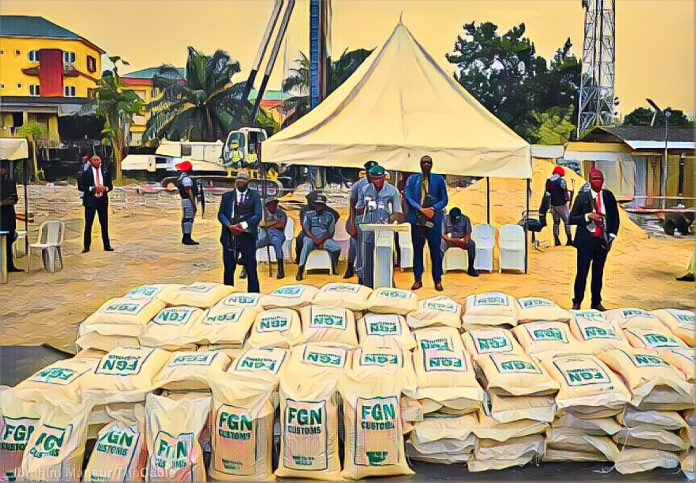In a troubling manifestation of Nigeria’s escalating food insecurity crisis, Abuja witnessed scenes of chaos as desperate individuals, driven by hunger and economic hardship, engaged in widespread looting of food items from both public and private storage facilities. This unsettling development in the Federal Capital Territory (FCT) reflects the profound distress enveloping the nation, which has recently been rocked by protests stemming from the severe nationwide hardship. The crisis was further underscored by incidents such as the hijacking of trailers laden with foodstuffs in the Suleja area of Niger State and a truck full of spaghetti near Kaduna, alongside a rebellion by inmates at the Correctional Centre in Jos, Plateau State, protesting against the reduction in their food rations.
Echoing the tumultuous #EndSARS protests of 2020, which saw citizens raiding warehouses and shops in a desperate scramble for resources, a significant number of Nigerians converged on the warehouse of the Abuja Municipal Area Council (AMAC), leading to an opportunistic spree of looting across the Idu Industrial zone. Despite the deployment of security forces, the looters managed to ransack several warehouses, highlighting the gravity of the hunger and economic crisis gripping the nation.
In response to the dire situation, the Federal Government announced plans to mobilize armed forces, police, and the Nigerian Civil Defence and Security Corps (NSCDC) to oversee the distribution of food items across the country. This emergency measure is a reaction to the skyrocketing food prices and rampant inflation, consequences of the economic policies implemented by President Bola Tinubu’s administration. The crisis has reached such a critical point that Nigeria, grappling with nearly 30% inflation, has found itself in the paradoxical position of receiving food aid from war-afflicted Ukraine.
The government’s initiative to distribute 42,000 metric tonnes of grains, including sorghum, maize, millet, and garri, aims to mitigate the impact of rising food costs. However, the logistical challenges of delivering these grains to the most affected areas highlight the complex nature of addressing food insecurity amid ongoing economic turbulence.
The recent looting spree in Abuja not only underscores the desperation of the populace but also raises serious concerns about the stability of the nation’s food supply chain. Security forces were eventually able to quell the unrest and arrest some of the looters, yet the incident serves as a stark reminder of the broader socio-economic issues facing Nigeria.
The Vice-President, Kashim Shettima, has called for responsible and mature protestation from Nigerians in the face of these economic challenges. Acknowledging the hardships, particularly as the Ramadan period approaches, Shettima emphasized that the government’s economic reforms, though difficult, are necessary for the nation’s recovery. He assured that the administration is not oblivious to the pains of the populace and is committed to finding sustainable solutions that are informed by the Nigerian context.
This crisis paints a grim picture of the state of food security in Nigeria, highlighting the urgent need for comprehensive strategies to address both the immediate and underlying causes of the problem. The government’s efforts to stabilize the situation through grain distribution and economic reforms are critical steps, but the path to recovery will undoubtedly require concerted efforts across all sectors of society to ensure that the basic needs of every Nigerian are met, and the specter of hunger is banished from the nation.



